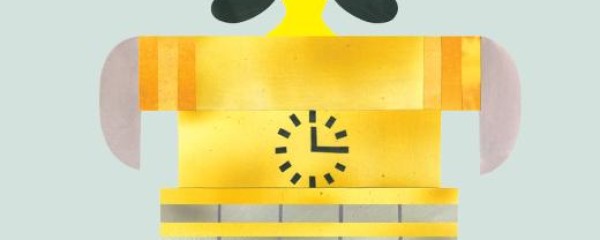HOME research project recommends repatriation of historical human remains from former Belgian colonies
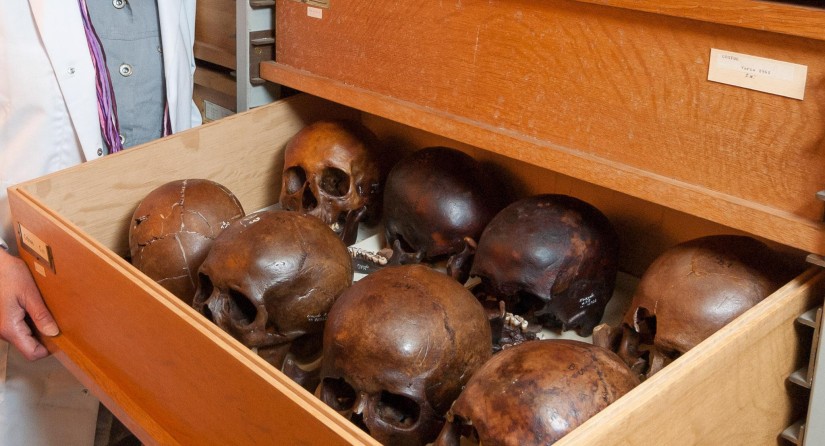
A multidisciplinary research team coordinated by the Royal Belgian Institute of Natural Sciences (RBINS) is calling to change the law to facilitate the repatriation of human remains where requested and to put human remains out of commerce. The HOME project also recommends a focal point to manage the information related to human remains collections in Belgium.
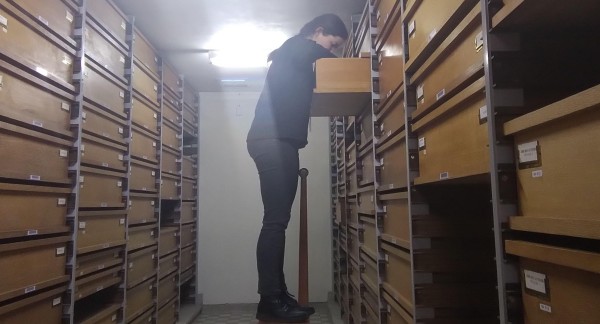
Claims for repatriation have intensified worldwide in the last few decades and there is a large growing awareness of the need for reparation and repatriation of human remains held in public and private institutions. The research project HOME (Human Remains Origin(s) Multidisciplinary Evaluation project was funded through the BELSPO BRAIN-be 2.0 Pillar 2 ‘‘Heritage science’’ and was set up following questions on the ethics of the presence of human remains in the Belgian Federal Heritage and how some of these remains were appropriated during the colonial era.
HOME ran from December 2019 to December 2022 and focused on taking inventories of collections of human remains in Belgian institutions, with a particular emphasis on case studies from the different human remains of historical time or colonial context in the Belgian federal collections. The partners in this project were – Royal Belgian Institute of natural Sciences (RBINS), Royal Museum for Central Africa (RMCA), Royal Museums of Art and History (RMCA), National Institute for Criminalistics and Criminology (NICC), Université Saint-Louis (USL-B), Université Libre de Bruxelles (ULB), Université de Montréal (UdeM). Short executive summaries of the results of each partner are also available.
Human remains in Belgian institutions
A survey on human remains conducted by the HOME project in conjunction with FARO and the Synthesis project of the Flemish Heritage Agency on Archaeological human remains (MEMOR) showed that a minimum of 30,000 human individuals are currently housed in 56 collections (museums, universities and private collections). The vast majority of these human remains are from Belgian historical and prehistorical collections.
Most of the historical collections from outside of Belgium are collections of skulls from around the world which were previously collected in Belgian pre-colonial and colonial contexts and they are housed in RBINS. There are over 500 historical remains from the Democratic Republic of Congo, Rwanda and Burundi which were collected in a highly problematic colonial context. These are largely part of the collections transferred from the RMCA in 1964-65.
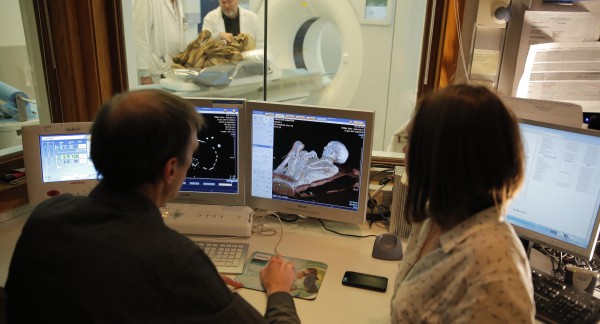
There are also smaller collections from different geographical origins, periods and contexts. These include archaeological collections, mummies, relics, incinerated/calcined bones, shrunken heads and also numerous artifacts composed of human remains (musical instruments, ceremonial headdresses, etc.).
Human remains cannot be considered to be “objects” and the repatriation of ancestral remains can help promote healing and reconciliation between countries and within communities. For certain communities, the repatriation of their ancestral remains is of prior importance although others have no wish to have their human remains returned, especially if imposed upon them.
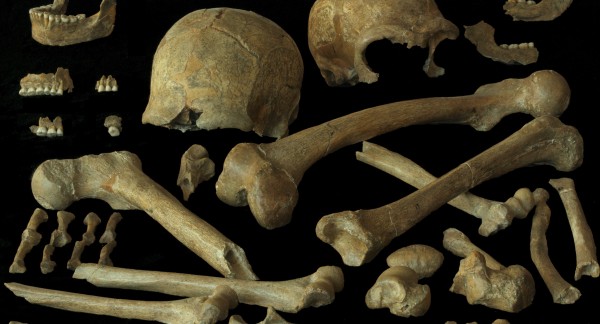
There have been in the past decades several formal and informal requests for the repatriation of ancestral human remains which are housed by Belgian federal scientific institutions. These include a Tasmanian skeleton which is currently located in the Royal Belgian Institute of Natural Sciences (RBINS) and two Maori heads located in the Royal Museums of Art and History (RMAH)
These requests were not previously addressed in part because of the previous belief that at the time of the request there was a lack of a legal framework in which to repatriate these remains, in part due to the era in which the requests were made where human remains were thought to be valuable for science and finally due to a lack of knowledge of how to proceed with such claims.
In 2018, there was a request for the repatriation of the skull of the chief Lusinga from the Democratic Republic of Congo. This demand was addressed by a member of the family to the Belgian king and supported in 2019 by members of the Tabwa community, but never relayed by the government of the DRC.
The Rwandese administration was contacted during the HOME project and a wish for the repatriation of the Rwandese human remains associated with a provenance study was expressed by Rwanda.
In Belgium, only one repatriation of a human remain between Belgium and DRC has recently occurred, namely the repatriation of the tooth of Patrice Lumumba to family members. One of the partners of the project (Université libre de Bruxelles (ULB)) also transferred the ownership of 10 skulls of Congolese origin held at the ULB to the University of Lubumbashi (UNILU) in 2020 with a view to repatriation at a later date.
Recommendations: open policy for repatriation
The HOME project recommends that the Federal Scientific Institutions (FSI) should have an open policy with regards to repatriation of human remains. The following recommendations can also apply to different public and private institutions in Belgium on how they can also manage their (pre)historical human remains collections in the future.
- Changes should be made to the law to better respect human remains, limit their trade and facilitate their repatriation. Repatriation of human remains is of societal importance because it touches upon human dignity.
- We recommend that human remains are out-of-commerce.
- We recommend that human remains are out-of-commerce.
- Human remains cannot be considered as ‘objects’ and the repatriation of ancestral remains can help promote healing and reconciliation between countries and within communities. Repatriation is a part of a process and/or dialogue that signifies reparation and follow-up, possibly including:
- Joint collaborative provenance research with Belgium and countries and/or communities of origin in the respect of their cultural rights;
- All forms of commemoration(s) in the countries of origin;
- Sensitising projects including educational policies and tools in Belgium and countries of origin.
- Repatriation of all historical human remains in federal collections relating directly to the colonial past of Belgium should be repatriated if requested with no conditions placed upon their return by the Belgian State.
- The Belgian colonial past and its ongoing consequences must be taken into account in the management of colonial collections. These collections are directly linked to a specific context of domination of a territory and its populations by a foreign occupying state.
- Repatriation could be to the descendants if the individual is identified, to the community of origin or to the country. An internal dialogue in the country of origin has to define the repatriation process.
- In the event of a repatriation request coming from the family or the community, the Belgian State has to do due diligence and notify the country of origin, in recognition of their sovereignty. Given the potential impact of repatriation processes on relations between communities and families in the countries of origin, it seems important to allow States of the countries of origin to mediate and consult their source communities and other concerned citizens to achieve solutions between all parties involved;
- Effective repatriation is performed through bilateral agreements between the Belgian State and the State of origin which determine the practical conditions of the repatriation of the human remains according to the will of the descendant and/or the community of origin where applicable;
- Repatriation processes and effective repatriation have to be performed at the expense of the Belgian State. Modalities need bilateral agreements;
- A moratorium must be observed on the study of human remains from the Belgian colonial past which are part of the Belgian State heritage. If the human remains are to be included in a study, this should only be done with the agreement of the descendants, or the representatives of the community or the country.
- These recommendations could also be applied to any other historical collections of non-Belgian origin. We recommend that the government should be open to the repatriation of all the human remains from the historical period which are part of the State heritage from outside of Belgium. This includes the repatriation of the Tasmanian skeleton and the Maori heads from the Federal collections, which were subject to previous repatriation requests. Guidelines of best practices related to human remains from (pre)historic periods of (non)Belgian origin will be available soon in a separate document after the publication of the advice on the status of the Human remains by the Belgian Advisory Committee of Bioethics.
- Genetic analysis alone is not recommended to prove a link between two persons or a community and a deceased person, as family relationships are not always based on blood ties, and other lines of evidence such as sociological, historical, and anthropological elements must be considered in each request.
- The repatriation of human remains is only part of a process. Detailed provenance research might be also of vital importance. In line with the recommendations of Restitution Belgium (2021), we recommend a significant increase in funding for provenance research in Belgium.
Provenance research must be a collaborative process but it remains the responsibility of funding bodies and political decision-makers to ensure sufficient funds and staff to meet these demands.
Concerning the human remains and the requests of repatriation we recommend to
promote:- PhD scholarships for students from countries of origin for research on human remains;
- Exchange programmes that allow researchers from both countries to work together on provenance research and repatriation;
- Funding for collaborative projects with countries of origin with the goal of repatriation and to share knowledge, oral histories in the countries of origin as well as archival and information from the human remains themselves;
- Funding for community-based projects focusing on the healing of the community and the repatriation of human remains;
- Funding for former colonised countries for the physical return of human remains;
- Continued funding for digitisation of archival materials for FAIR sharing of the information.
- A focal point related to human remains should be set up to provide all information to institutions, administrations, communities and private persons on the status and guidelines of best practices related to human remains to be applied in Belgium and link to the advice of the Belgian Advisory Committee on Bioethics on the status of human remains;
- The focal point does not centralise a single inventory of the Human remains but provides links to the various local, regional and federal inventories of human remains hosted in Belgium as well as relevant contact information;
- Concerning the repatriation of human remains of non-Belgian origin, it could:
- centralise the repatriation requests and processes;
- integrate into the repatriation process itself by providing support to individuals, communities and States of origin in the preparation of their request and by cooperating with the administration of the countries of origin to set up the practical conditions for the return;
- act as an intermediary with Belgian institutions/individuals wishing to repatriate human remains;
- facilitate provenance research by organising access to archives and documentation relating to collections of human remains.



